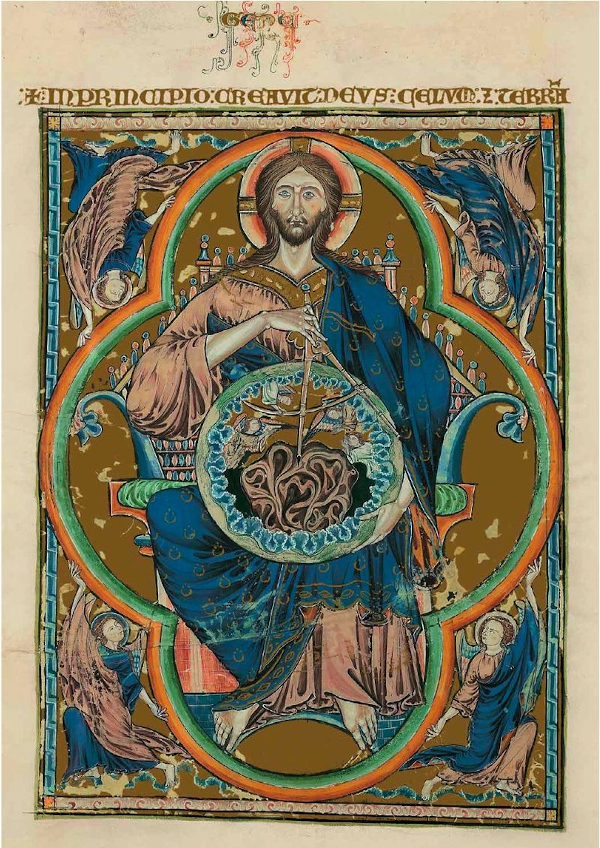Research: Creation in Theology, Philosophy & Science
One of my interdisciplinary research interests is exploring the notion of creation from theological, philosophical and scientific angles.
On This Page: Physical Cosmology and the Doctrine of Creation • Philosophical Knowledge and Creation • The Transcendentals
Physical Cosmology and the Doctrine of Creation [⯅ Top]

You will often hear the word ‘creation’ used in both religious and scientific contexts, but do they mean the same thing? If one speaks about the big bang as ‘the moment of creation’, in what sense might one be referring to what God effects through ‘creation’ in the Biblical sense? Can so-called fine tuning in the Universe be construed as evidence of ‘design’? These are the sorts of questions that I am interested in exploring by drawing on my background in physical cosmology, theology and philosophy.
In 2014–15 I participated in a research project on the doctrine of creation ex nihilo (CEN) that culminated in the 2018 collection entitled Creation ex nihilo: Origins, Developments, Contemporary Challenges. In my contribution, ‘What Does Physical Cosmology Say about Creation from Nothing?’ I argued that concepts like matter and nothingness have different meanings in the metaphysical framework of CEN than they do in the scientific context. Sorting through this conceptual landscape yields surprising resonances between the metaphysics implicit in the scientific study of creation and the core meaning of the theological doctrine.
More recently I have been thinking about how the notion of fine tuning might be related to God's causality—this was the topic of a paper I presented at a 2019 Templeton symposium on Understanding Our Place in the Universe: Beyond the Legacy of Stephen Hawking in Jerusalem. The core issue, as I see it, is one of the intelligibility of the material world per se, and focusing on certain cases of intelligibility that are construed as improbable can head away from the claim about God's creative act made by Christian theology. In particular, it is important to keep firmly in mind the doctrine of the Fourth Lateran Council on the analogical language we employ when talking about God: to wit, that even speaking of God as a ‘cause’ requires careful distinguishing from the sorts of causes that we know empirically. Finally, I speculate on whether the classical notion of ‘prime matter’ is relevant to the notion of fine-tuning, in terms of conceptualising the most rudimentary level of intelligibility that the physical world might evince.
Philosophical Knowledge and Creation [⯅ Top]
My ThM/STL thesis, ‘Natural Knowledge of Creation from Nothing’, argued that the doctrine of creation ex nihilo (CEN) can be an object of natural human reason. The dogmatic context for this claim is the doctrine of the First Vatican Council that God can be known philosophically ‘with certitude’. I link the analogy of being, as articulated by Erich Przywara, to a Thomist account of CEN to make my case. In brief, natural knowledge of God occurs via the world–relation, and I show how CEN is implicit in this relation. Furthermore, I draw upon the thought of Bernard Lonergan to place natural knowledge of CEN within its moral and religious context. My claim is not, therefore, that CEN can be easily arrived at by a bit of facile logic, but rather that it is the result of what Lonergan terms ‘intellectual conversion’, itself occuring within the purview of moral and religious living.
The Transcendentals [⯅ Top]
Aristotle famously argued that the notion of ‘being’ is transcendental: that is, it does not constitute a genus or category of things, but is beyond genus. Mediaeval philosophers went on to discover that certain other notions are coextensive or ‘convertible’ with being, most notably ‘one’, ‘true’ and ‘good‘. To this triad, some add ‘beautiful’. I am interested in how the metaphysical aspects of the transcendentals relate to creation. In a related vein, I have a forthcoming paper in the Method: Journal of Lonergan Studies that proposes how ‘beautiful’ might be considered a transcendental in a Thomist context by using the methodology of Lonergan's intentionality theory.